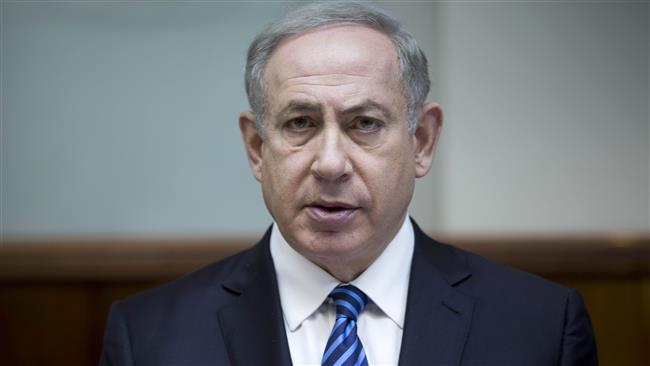
RNA - “We are at the start of a significant diplomatic period” for Israel, Benjamin Netanyahu said on Sunday before going on the tour, The Guardian reported.
The visits will take him to the UK, the US and Australia.
“In the diplomatic sphere, I intend to emphasize the need for a common front against Iran’s defiant aggression, which has raised its head in recent days. This must be done on an ongoing basis, but especially in light of Iran’s defiance against the international order,” he added.
The premier has never ceased to stigmatize Iran throughout his career atop the Israeli political hierarchy, but he has been more signally leading the hostile policy since 2015, when the Islamic Republic and world powers, including the UK and the US, clinched a landmark nuclear accord in what was praised by the world as a win for diplomacy.
Tel Aviv has called the agreement a “bad” one.
Israel has recently been emboldened by the inauguration of new US President Donald Trump, the regime's stalwart supporter who has adopted a tough line against Iran and vowed to “tear up” or try to renegotiate the nuclear deal.
Netanyahu recently said, “I know this agreement bothers not only Israel and not only the United States but many other countries in the region as well and we will move this ahead because Iran’s aggression must not go unanswered.”
Trump has also ratcheted up Washington’s rhetoric against Iran’s missile work, which Tehran says is not in contravention of the nuclear agreement as the projectiles are not designed to carry nuclear warheads.
This too has whetted Tel Aviv’s anti-Iran inclinations.
“I will be meeting with President Trump in Washington soon and among other things I intend to raise with him the need to renew sanctions against Iran – sanctions against ballistic missiles and additional sanctions against terror, as well as dealing with this whole weak nuclear agreement,” Netanyahu added.
The Israeli prime minister maintains high hopes of successfully lobbying the world leaders against Tehran.
Reports say British Prime Minister Theresa May is expected to warn him about the dangerous trend of Tel Aviv’s settlement construction upon Palestinian territories.
“I would expect the prime minister to set out the government’s position that we think the continued increase in settlement activity undermines trust,” a UK government spokesperson told reporters last week.
Labour leader, Jeremy Corbyn, meanwhile, said Israel’s “decision to build 3,000 new settlement homes in the occupied West Bank and East Jerusalem is illegal under international law and a threat to peace and international security.”
Corbyn urged the prime minister to tell her Israeli counterpart that the government stands “unequivocally behind the rights of the Palestinian people, along with the many who support them in Israel.”
847/940